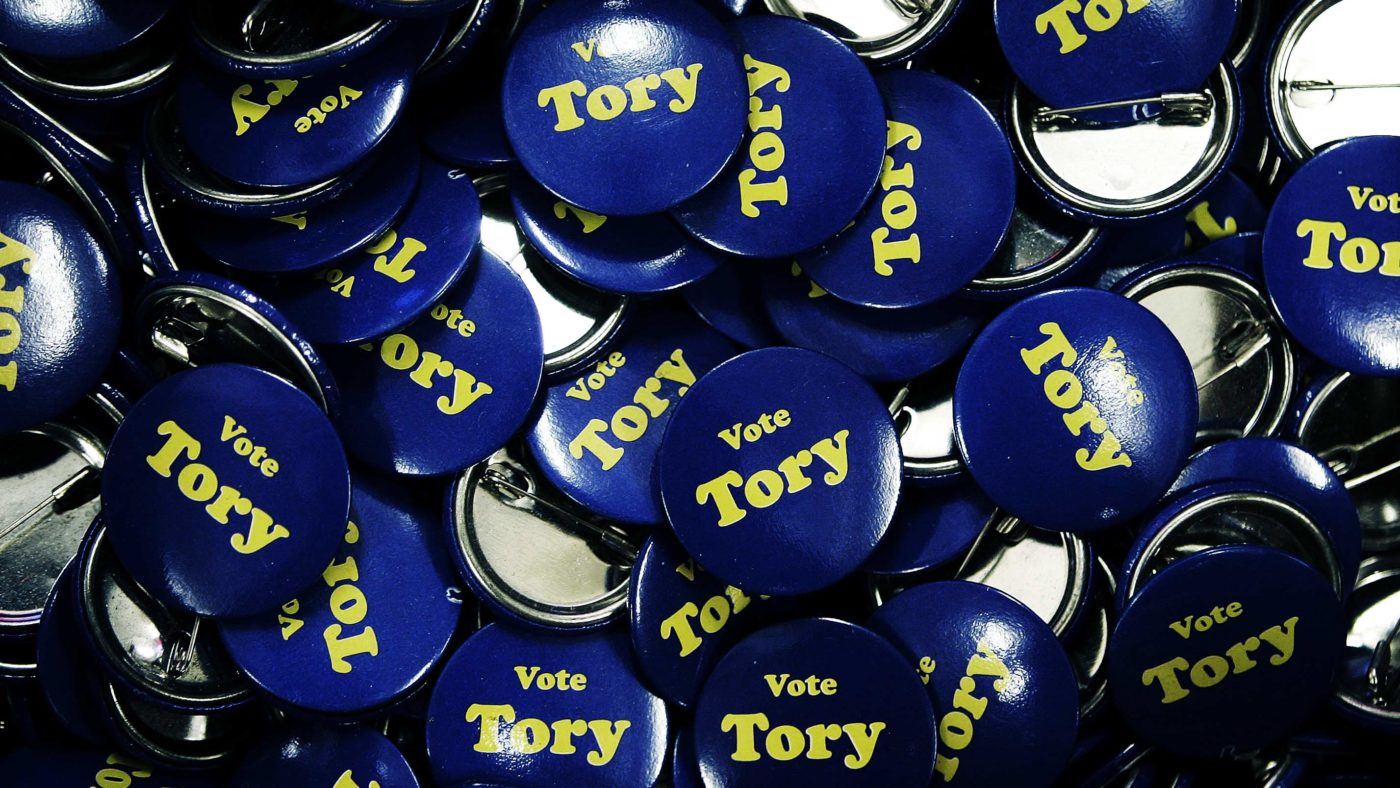Forecasts of a landslide victory for Theresa May abounded at the weekend, with one poll, by ComRes, even putting the Conservatives on 50 per cent, the highest since 1992. But at this point, such expectations need reining in and we should be sceptical of a May landslide. By landslide I mean a Thatcher or Blair style majority of 100-140 seats, as some pollsters seem to be predicting. The commentator Iain Dale is forecasting a majority of 74 and I would agree with him.
A majority of about 70 is a good, strong number. It means the Prime Minister will have the authority to bring stability to the country, to negotiate robustly with our EU partners, and to implement a clean Brexit. She would also be less likely to fall victim to the ultimate political illness: hubris.
There are, in my view, five reasons to be cautious about a total rout.
The first is the localised nature of our Parliamentary system. It is all very well citing the Tories’ 25 per cent poll lead, but the ultimate result will depend on where those votes are. Many of them will be piled up, somewhat uselessly, in existing Tory safe seats or in ultra-safe Labour or SNP ones.
By contrast, there are many seats, especially in the West country, in university and spa towns, which were held by the Lib Dems only two years ago and might not be so safe. The polls suggest that a Lib Dem recovery is underway, membership is rocketing, and a leaked memo from the Tory guru Lynton Crosby only three weeks ago suggested the Lib Dems could take 27 seats from the Conservatives.
In addition to which, the use of new technology, such as social media, hyper-localised digital advertising, targeted polling and individually customised mail shots actually mean local factors are more important in General Elections than they used to be. Just look at the rise and fall of figures such as Zac Goldsmith and Douglas Carswell, both of whom relied heavily on social media in their campaigns.
As a result there could be some very big regional and local variations to the national, average swing.
Take, for example, Tooting, a constituency near where I live in South West London. It was Mayor Sadiq Khan’s seat and the current Labour MP is Rosena Allin-Khan, a local NHS doctor. I would be very surprised if she was turfed out by a May landslide. Even local Tories reluctantly quite like her.
The second, is Conservative chaos. Behind the scenes, CCHQ is scrambling like mad to ready itself for an election. There is no money. Nobody is in charge. It is unclear what role Lynton Crosby will have. The party has announced emergency procedures to impose shortlists on target seats and candidates on others. But there is, as yet, no target list. Once candidates are selected, the strong centralising tendency of this process could well throw up some local grievances and quirks.
The third, is a lack of fear factor. The single most important argument the Conservatives used in 2017 was that a vote for anyone but them would lead to a “Coalition of Chaos”, led by Ed Miliband and the Scottish Nationalists. They cannot say that this time round because nobody believes that Theresa May could lose. As a result, turnout could be very low.
The fourth, is Labour tribalism. If you have canvassed in the Midlands and the North, as I have done on several occasions, you will know that plenty of voters are deeply, instinctively, genetically, Labour voters. They would rather eat their own hands than vote Conservative.
They may not like Jeremy Corbyn, but many of them will vote for a local Labour candidate they like and trust. We should not forget too that there are 6.4 million trade union members in this country, part of the dense matrix of local and national institutions in the Labour movement. Thousands of them double up as Labour supporters.
Already, there is some evidence of this. There is much excitement about Andy Street, the former John Lewis CEO, running to be the Mayor of the West Midlands Combined Authority on May 4. Useful polling is almost non-existent but one – admittedly somewhat dubious – poll of Birmingham Mail readers last week found that Mr Street and the Labour Candidate, Sian Simon, were neck and neck at 32 per cent. Once second preferences were counted (and that is the system), Sian Simon was ahead at 53 per cent to 47 per cent.
Finally, there is policy. I am sure I am not the only person to fear that the Conservatives’ sure-footed commitment to low taxes and market-based economics has progressively deserted them in recent years, and that process has unfortunately gathered pace under Theresa May and her Chancellor Philip Hammond.
As it stands, all we know about the Tory manifesto is that it will apparently promise an energy price cap for 17 million households and intends to carry spending of 0.7 per cent of GDP on overseas aid, while dropping a commitment not to raise taxes. There seems to be a continued lack of credible, long-term economic thinking in senior Tory circles and this could easily haunt them throughout the election campaign.
We can’t, of course, completely rule out a May Landslide. One certainly has to admire the authority and moral serious she exudes. But before putting any money on it, I’d recommend waiting until the results from the West Midlands and the other six Metro Mayor contests come in the week after the Bank Holiday weekend.


